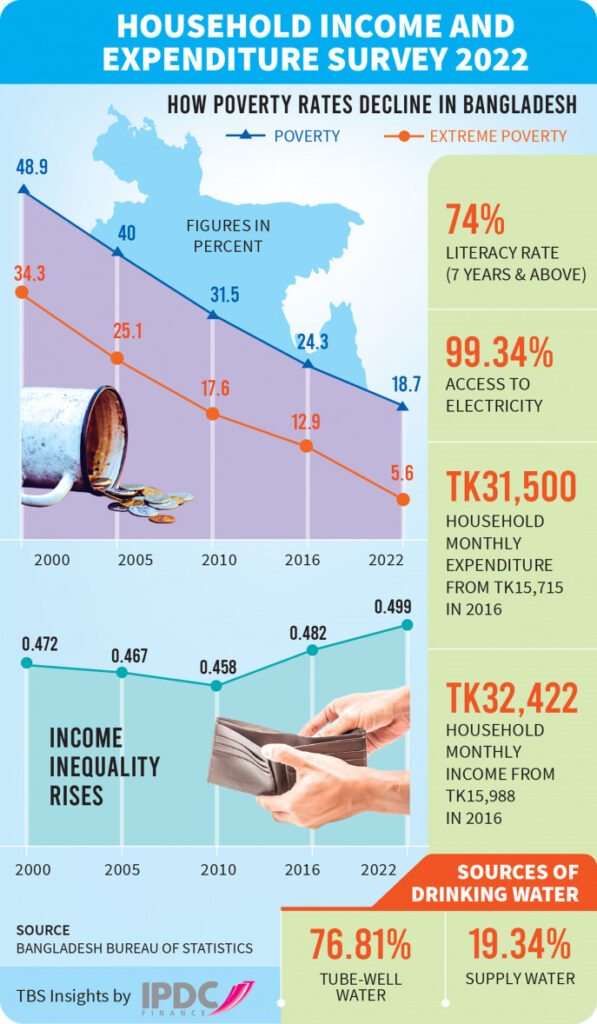Despite a sharp decline in the poverty rate since 2000, the income inequality is widening fast in the country, creating ‘two societies in a society’ having an opposite picture, eminent economist Dr Binayak Sen said Tuesday. “We don’t have a common health and education for all. Rich people send their children to English medium schools while the poor depend on government institution-a clear difference between rich and poor,” he added.
Dr Sen, Director General of the Bangladesh Institute of Development Studies (BIDS), made the observation in a keynote presentation titled “Poverty Trends and Dynamics in Bangladesh: Insights from Recent Evidence” at a programme in the capital. International Centre for Diarrheal Disease Research, Bangladesh (icddr,b) organised the programme marking its 63rd year anniversary.
The economist, however, explained the nature of inequalities differently in Bangladesh as both poor and non-poor experienced improvements, but the extent of improvements is higher for the non-poor.
It is clear that social protection-in its present modest form -cannot influence the level of growing inequality trends as well as trends in consumption or income inequalities, he added. He said rights-based approaches via tax-financed social protection can work better in the context of stronger state fiscal capacity, which is presently limited. “We need many ingredients to keep up the poverty reduction momentum.”
He suggested enhancing the role of tax-financed human development – expanded coverage of publicly provided quality health care and improved quality of basic education for all. Geo-economics matters for sustaining investment, market access, growth and poverty reduction, he said, adding that consumption inequality is also rising both in urban and rural areas.
In his welcome speech, Dr Tahmeed Ahmed of icddr,b emphasised the icddr,b’s ground-breaking development of Oral Rehydration Solution (ORS) and outlined its role in reducing childhood diarrhoeal disease mortality and advancing maternal and neonatal health, including significant progress in tetanus toxoid vaccine research.
Dr Lilly Nicholls, High Commissioner of Canada to Bangladesh, said: “The icddr,b is contributing not only to research but also to the community, specially to the poor who have no means or access to the services.”
SOURCE: CLICK HERE

